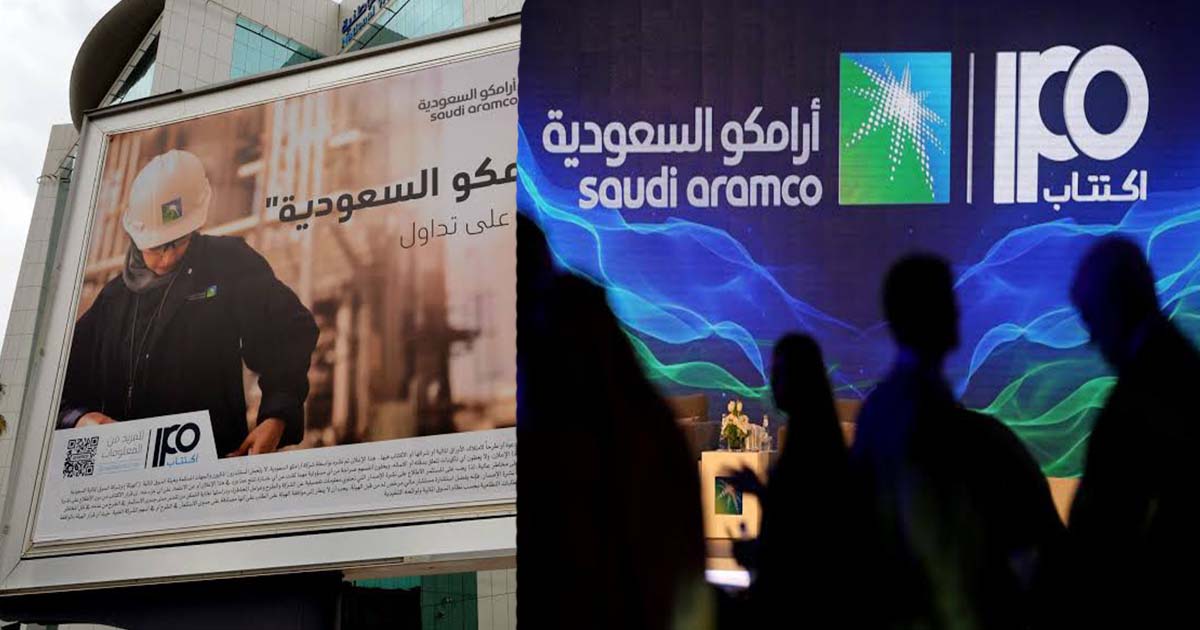While many around the world remain sceptical, analysts have suggested Mohammad bin Salman is the architect behind a wide-range of social and economic changes under Vision 2030 for Saudi Arabia. The successful “Initial Public Offering” (IPO) of Saudi Oil Giant, Aramco is on track making a way for economic liberalisation of Saudi Economy.
Economic Changes
Saudi Aramco’s share sale has attracted bids worth $44.3 billion as of Friday, about 1.7 times the amount the kingdom’s government plans to raise in what is on course to be the world’s largest listing when it formally prices next week.
Abu Dhabi is planning to invest as much as $1.5 billion in Saudi Aramco’s initial public offering https://t.co/RMrrqXacIT
— Bloomberg (@business) November 26, 2019
Subscriptions to the sale are overwhelmingly from Saudi investors and others in the GCC region (UAE & Kuwait) according to the banks arranging the initial public offering, (IPO) indicating a lukewarm response from international institutions that have balked at the energy giant’s valuation of $1.6 to $1.7 trillion set by the Saudi government. MBS had initially hoped that ARAMCO will be considered worth $2 trillion – however these assessments had to be scaled down.
The kingdom, at this initial stage, is seeking to sell 1.5% of the state-controlled company, known officially as Saudi Arabian Oil Co (ARAMCO) and with most of the bids at the top end of the valuation the government is likely to raise $25.6 billion. That would beat out Alibaba Group Holding Ltd.’s 2014 IPO, which raised $25 billion – so far the biggest IPO that ever happened.
Read more: Saudi Aramco hits the Stock Market in record-setting debut
The sale is a key element of Crown Prince Mohammed bin Salman’s program to open up his country to foreign investors and diversify its oil-dependent economy. The IPO is the culmination of the crown prince’s yearlong effort to sell part of Aramco after first raising the possibility of a listing in 2016. Wall Street Journal, top ranking US publication that tracks economic and business developments world wider reports that Prince Mohammed has accelerated the much-delayed listing this year, installing loyal officials who backed the share sale and marginalising those who opposed it.
The prince had hoped to raise up to $100 billion to help fund the economic transformation he has promised the Saudi people. But Saudi officials scaled back the size of the offering in recent weeks, in part because of tepid demand from global buyers – most of whom have stayed away.
In April 2016, Saudi Arabia curbed the power of its religious police which patrolled public spaces to impose restrictions such as the ban on alcohol-bans, women’s dressing, and gender segregation
Previous efforts under MBS to open up Saudi economy pushed the stock market to double ownership limits for foreign investors. In 2016, limits for foreign investors were relaxed from 5% to 10% granting them full access to a parallel market for SME enterprises in 2018, and accepting license applications in the military-industrial sector in 2019. These are very significant changes for Saudi royal family that had closely guarded the Kingdom’s economic structure since 1960’s. Fears of foreign investors taking over and creating political instability have loomed large across the Middle East since the days of Standard Oil Company.
For international trade, MBS took to charm the East with glowing prospects. In February 2019, MBS executed a successful high-profile tour of Asia discussing billions of dollars’ worth of trade and investment deals in China, Pakistan, and India. Despite the geopolitical sensitivity in the region, he was able to strategically target each country’s needs and make offers they could not refuse.
Saudi Arabia and India are working together in a wide range of sectors notably energy, security, trade and culture. This visit will add strength to our bilateral relations. https://t.co/OrUyLQ76qy
— Narendra Modi (@narendramodi) October 28, 2019
Saudi Arabia announced in October that it is in the final stages of operationalising the TIR system, (Transports Internationaux Routiers, Customs Agreement as per TIR Convention) to further strengthen the strategic position of the Kingdom as a regional trade and transit logistics hub. By implementing TIR Customs Convention, Saudi Arabia becomes an important connecting hub for three continents – Europe, Africa, and Asia – and will join a globally applicable customs transit and guarantee system with 76 member countries worldwide. TIR Convention facilitates movement of goods and logistics between member countries with minimum of checking and interferences.
Furthermore, the tourism industry is a key pillar for the Crown Prince’s Vision 2030 reform programme that aims to diversify Saudi’s economy that is currently highly oil-reliant.
Read more: Saudi Arabia banking on tourism to start economic bonanza
Glitzy promotional campaigns focus on ancient sites as well as breath-taking desert and coastal landscapes. But authorities are also banking on large cities like the capital Riyadh and the western Red Sea port of Jeddah playing their part through large-scale investments in entertainment offerings.














